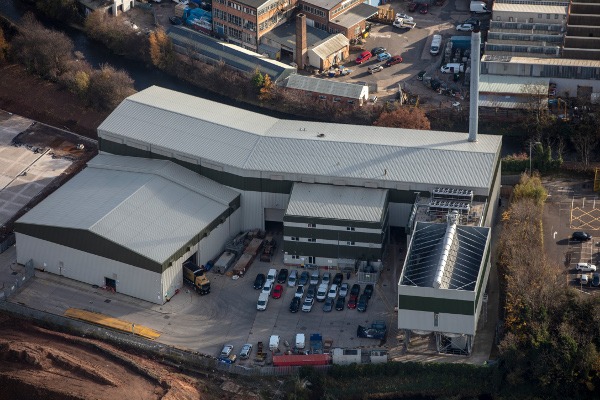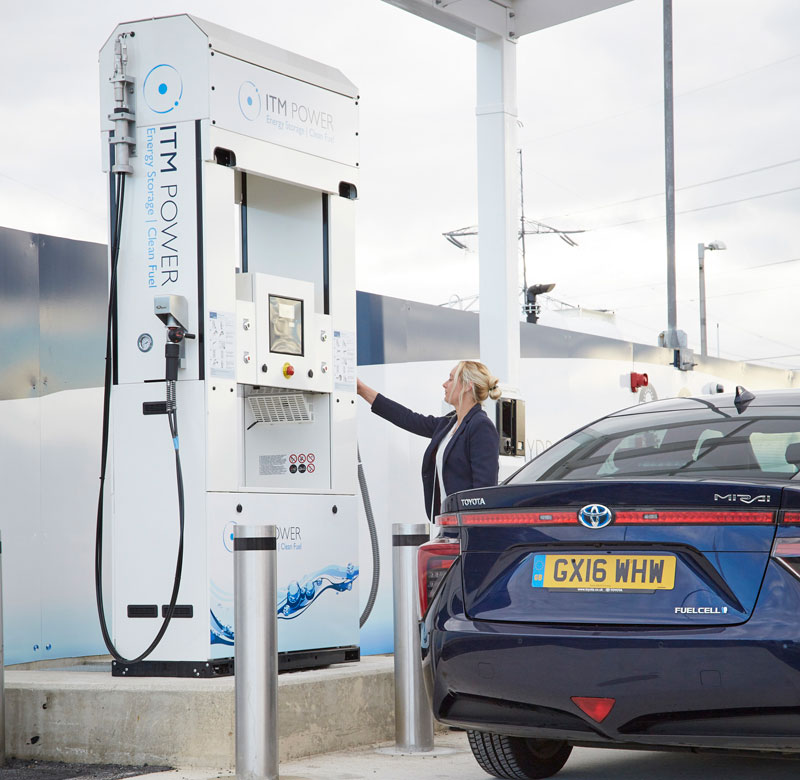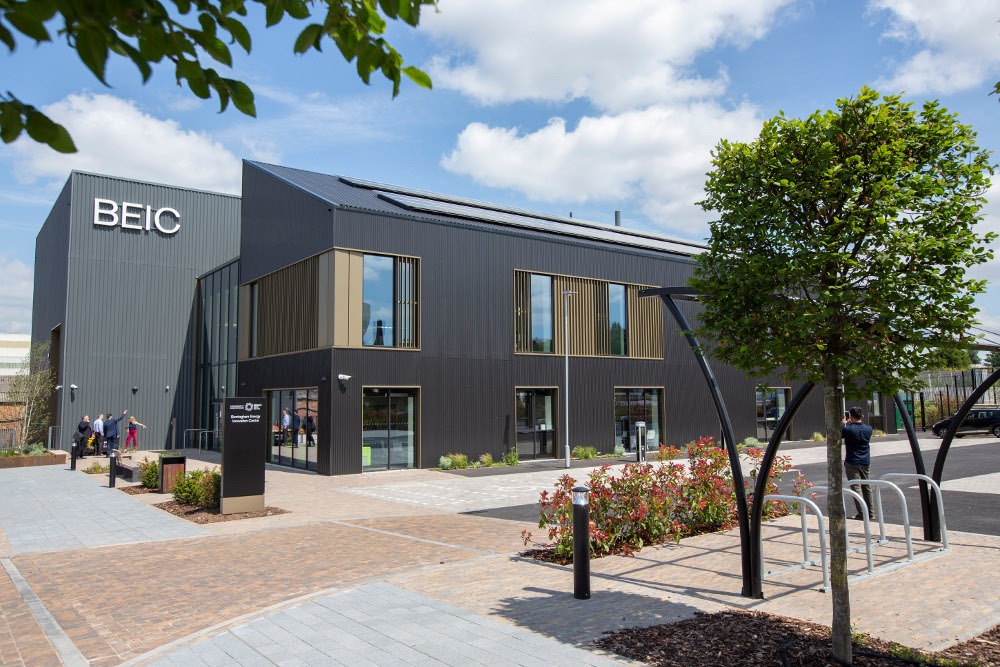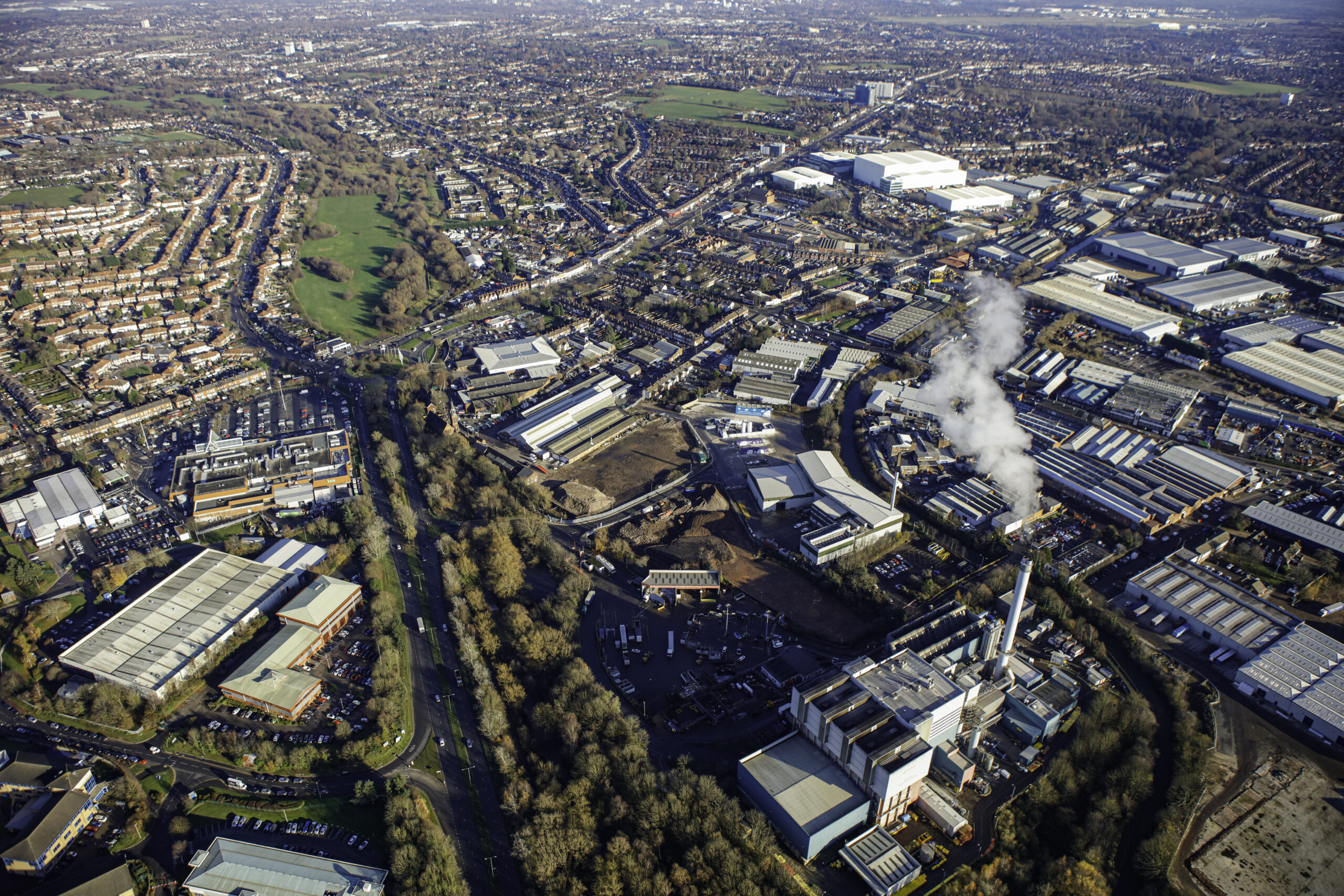Tyseley Energy Park (TEP) has a mission to transform clean energy innovation in Birmingham and across the region by stimulating and demonstrating new technologies and turning them in to fully commercially viable energy systems that contribute to Birmingham’s commitments to reduce CO2 emissions by 2030.
Through our ambitious development plan we are committed to delivering low and zero carbon power, transport, heat, waste and recycling solutions for a greener, cleaner, healthier Birmingham.
Phase One: 10MW Waste Wood Biomass Power Plant
On the first phase of Tyseley Energy Park, £47 million was invested into a 10MW waste wood biomass power plant. This plant supplies Webster and Horsfall’s manufacturing operation and tenants across the sixteen acre site with renewable electricity. This provides the foundations for a decentralised controllable Distributed Energy System in this location.
The biomass power plant has created 19 new jobs and diverted 72,000 tonnes of waste wood from going to landfill. The sustainable power generated is equivalent to the amount required to power 17,000 local homes.
Phase Two: The UK’s first low and zero carbon refuelling station
Strategically located between the city centre and Birmingham airport, this station supplies public and commercial vehicles with a range of sustainable fuels that reduce emissions. The fuels that are available include hydrogen from Hygen Energy, commercial-scale electric chargers, and GreenD+, a 100% drop-in replacement for diesel and gas oil from Green Biofuels Limited.
Phase Three: Opportunity
We currently have a 8500 M^2 (2.1 acres) plot at the heart of Tyseley Energy Park available to let. This space has the potential to become a once in a generation development site for the low carbon sector and already benefits from planning permission (ref:2009/05541/PA) that was granted on the 7th January 2010.
The land would be suitable for a range of low carbon technologies as well as new waste and sustainable energy technologies.
Find out more and download the brochure
Phase Four A: The Birmingham Energy Innovation Centre
The University of Birmingham’s £7 million Birmingham Energy Innovation Centre (BEIC) has been funded by the Greater Birmingham & Solihull Local Enterprise Partnership (GBSLEP). Opened in July 2021, it is the home of R&D, benchmarking and validation, business support, manufacturing systems integration and modelling expertise across the (public/private/academic) energy, waste and transportation systems sectors all in the one facility.
Working with existing energy and transportation system stakeholders, the BEIC is stimulating collaborative research and development projects to overcome local energy and low carbon transport challenges, demonstrating new and emerging technologies.
By supporting the development and deployment of these new technologies at scale, the BEIC is helping decarbonise electricity and heat and improve the environmental performance of the city as it seeks to achieve net zero CO2 emissions by 2030.
Phase Four B: The National Centre for the Decarbonisation of Heat
The National Centre for the Decarbonisation of Heat (NCDH), launched in 2024, is dedicated to addressing the UK’s critical challenge of transitioning to low-carbon heating.
The NCDH includes a Living Lab and Building Integration Unit, providing the capability to test and demonstrate energy innovations, market arrangements, and policy frameworks with real consumers. It focuses on retrofitting solutions for existing buildings and scaling up the manufacturing and deployment of low-carbon heating technologies.
This phase is a collaborative effort between the University of Birmingham, Tyseley Energy Park, and key regional partners. It positions the West Midlands as a leader in the decarbonisation of heat, contributing to Net Zero targets through solutions such as heat pumps, hydrogen heating, and district heating schemes.
Phase Five: Supporting Low Carbon Focused SME’s
We have created an environment where transport, heat and power focused businesses can receive support and collaboration opportunities in a location that is a key focus of Birmingham’s decarbonisation efforts.
Incubation space is available at TEP via two SME support programmes. The Climate Innovation Platform and the Energy Transition Centre programmes have been designed to provide businesses with access to packages of support that will drive the development of an SME’s low carbon business offerings.







